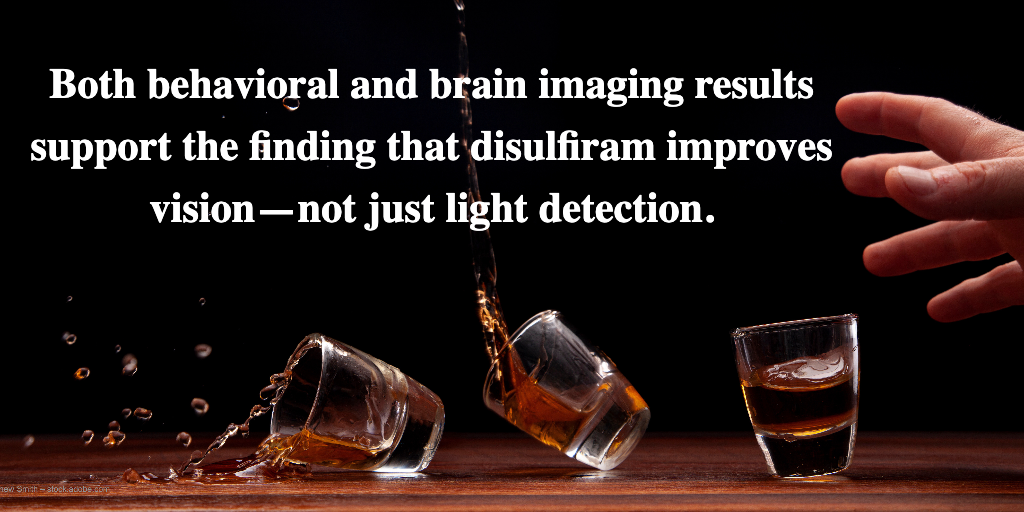- Therapeutic Cataract & Refractive
- Lens Technology
- Glasses
- Ptosis
- Comprehensive Eye Exams
- AMD
- COVID-19
- DME
- Ocular Surface Disease
- Optic Relief
- Geographic Atrophy
- Cornea
- Conjunctivitis
- LASIK
- Myopia
- Presbyopia
- Allergy
- Nutrition
- Pediatrics
- Retina
- Cataract
- Contact Lenses
- Lid and Lash
- Dry Eye
- Glaucoma
- Refractive Surgery
- Comanagement
- Blepharitis
- OCT
- Patient Care
- Diabetic Eye Disease
- Technology
Alcoholism treatment may play key role in restoring vision for AMD, RP patients
New research finds a drug used to treat alcohol use disorder could be a game-changer in restoring vision for patients with progressive blinding disorders.

A drug used in humans to treat alcohol use disorder may help restore vision loss in patients with conditions such as age-related macular degeneration (AMD) and retinitis pigmentosa (RP), scientists say.
A new mechanism has also been discovered for determining how vision degrades—potentially leading to a new class of drugs to reverse vision loss.
Michael Telias, PhD, assistant professor of Ophthalmology, Neurosciences, and Center for Visual Science at the University of Rochester Medical Center, first author of the study, published in Science Advances, said that while he and his colleagues had already known the pathway to the drug, called disulfiram (Antabuse) was similar to the pathway that is hyperactivated in degenerative blindness, their findings surpassed expectations.
“We saw vision that had been lost over a long period of time preserved in those who received the treatment,” Telias said, in a news release from the University of Rochester Medical Center.
Investigators, led Richard Kramer, PhD, professor at the University of California, Berkeley, and Michael Goard, PhD, assistant professor at the University of California, Santa Barbara, reported that disulfiram, which is FDA-approved, was found to help restore some vision in mice (the test subjects).

This was done by suppressing the sensory noise in the inner retina caused by dying photoreceptors brought on by the progression of outer retinal degeneration (like AMD and RP), where the light-sensing cells (photoreceptors) slowly die over the course of years.
Further, researchers found that disulfiram can target that sensory noise, which in turn allows the surviving photoreceptors in the outer retina to complete the signal to the brain—in turn, restoring vision.
Once treated with disulfiram, near-blind mice were found to better detect images on a computer screen. Both behavioral and brain imaging results support the finding that disulfiram improves vision—not just light detection.
"If a vision impaired human were given disulfiram and their vision got better, even a little bit, that would be a great outcome in itself,” said Kramer, in the release. “But it would also strongly implicate the retinoic acid pathway in vision loss. And that would be an important proof of concept that could drive new drug development and a whole new strategy for helping to improve vision."
Investigators plan to partner with ophthalmologists and conduct a clinical trial on human patients diagnosed with advanced (but not complete) RP in the near future.
See more AMD coverage
